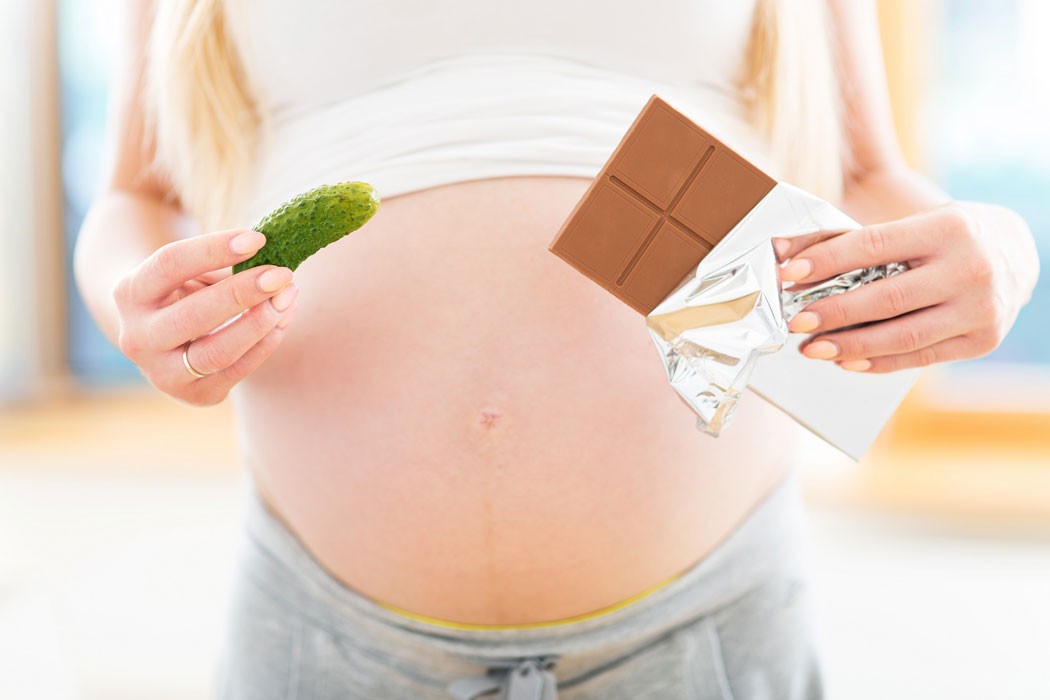It’s important to eat lots of nutritious foods during your pregnancy to nourish yourself and your baby. But the whole ‘eating for two’ mantra needs a makeover as pregnancy shouldn’t be an all-you-can eat time. In fact, putting on too much weight can be risky.
In a recent study, almost 47 percent of the women surveyed gained too much weight during their pregnancies. Why is extra weight a problem? It can lead to various health issues, such as an increased risk of gestational diabetes, premature delivery, and preeclampsia (a complication consisting of high blood pressure and damage to organs such as the kidneys), to mention a few conditions.
How Much is Enough?
If you think that you need to eat many more calories when you’re pregnant, this is not entirely true. It’s more about when your body actually needs those calories. According to the Statesman Journal, pregnant women don’t need to consume more calories than their usual diet in the first trimester of pregnancy. After this, they need approximately 200 to 300 additional calories every day until they give birth.
Recommended Weight Gain During Pregnancy
So, how much weight should you strive to gain during your pregnancy? It has a lot to do with how much you weigh before you fall pregnant. Know your body mass index (BMI), which you can calculate here, then check out these guidelines:
- If you have a BMI of 30 or more, you should strive to gain 11 to 20 pounds (approximately 5 to 10 kilos) during your pregnancy.
- If you have a BMI of 25 to 30, aim for 15 to 20 pounds (approximately 7 to 10 kilos).
- If you have a BMI of 18.5 to 25 (this is considered normal weight), you should gain between 25 and 30 pounds (approximately 12 to 14 kilos).
- If you are underweight and your BMI is below 18.5, you need to pile on about 28 to 40 pounds (13 to 18 kilos).
Stay at a Healthy Weight
Here are some food guidelines to ensure you maintain your weight without cutting back on the nutrition you and your baby need.
- Make sure you eat meals regularly, and make your snacks healthy ones, such as comprising of fruits and vegetables. You want to strive for up to 10 or more servings of fresh produce daily to get enough nutrients from them.
- Get more protein, such as from chicken and eggs, and if you’re vegan opt for quinoa, beans, seeds and nuts.
- When eating fats, choose monounsaturated ones but don’t let them take up more than 30 percent of your daily diet. Great monounsaturated fats include avocados, sesame oil, seeds, nuts and olive oil.
- Choose fibre-rich foods that will keep you feeling satisfied after a meal and prevent you reaching for unhealthy snacks such as junk food. Examples of fibre foods are pulses, fruits, vegetables and wholegrains.
- Get important nutrients for your pregnancy, such as calcium, zinc (found in chicken, turkey, dairy, beans and sunflower seeds), and iron (found in dried beans, egg yolk, fortified cereals and lean meat).
- Avoid sugary foods, including those that contain corn syrup on their ingredients lists. Look out for other hidden sugar ingredients, such as beet sugar, cane juice and more.
Step up!
Exercise can be beneficial during pregnancy. It can help prevent aches and pains, improve your sleep, and enable you to return to your regular weight after giving birth. However, always speak to your doctor before starting an exercise routine when you’re pregnant.
Image credit: Edyta Pawlowska / Dollar Photo Club











